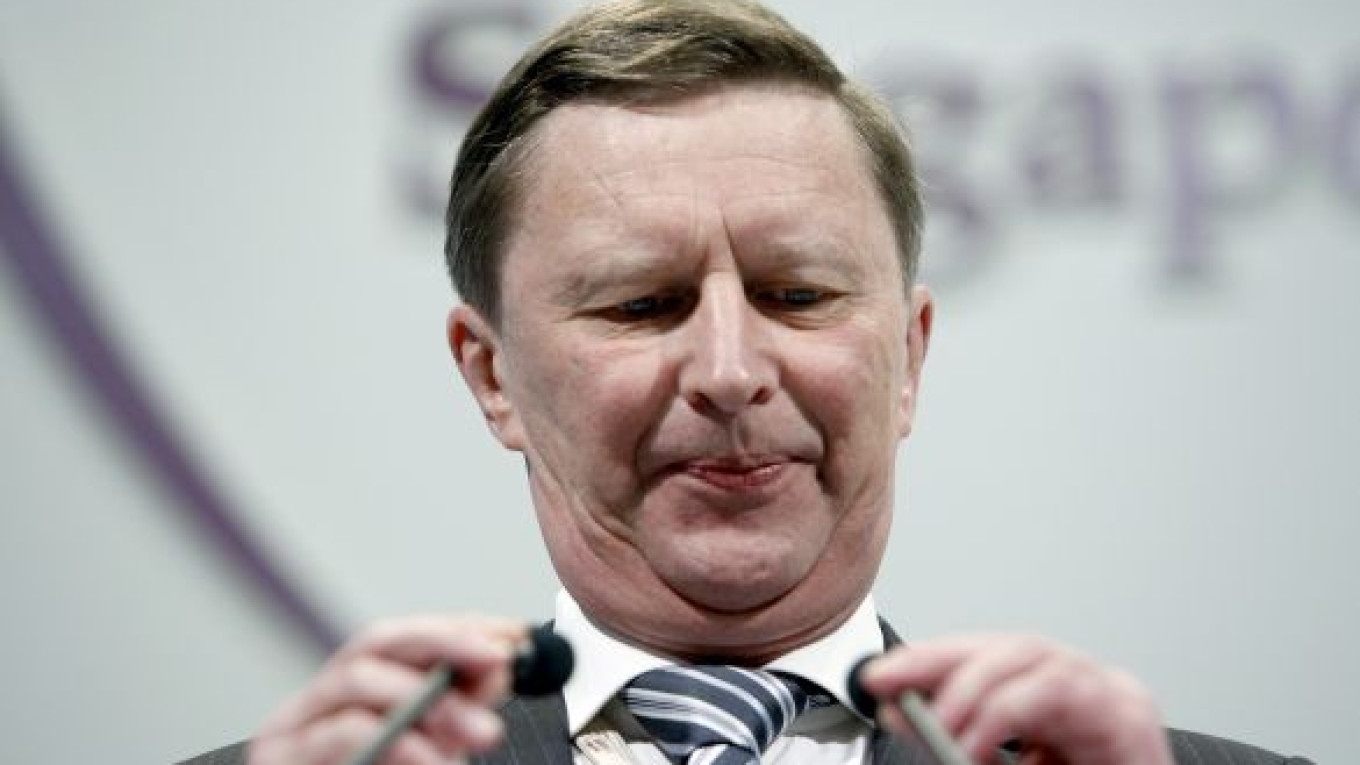SINGAPORE — Deputy Prime Minister Sergei Ivanov urged NATO forces in Afghanistan on Sunday to crack down harder on drug production and smuggling and said Russia could help put a security ring around the country.
The international community should classify Afghan drugs as a threat to peace and security because they have become an important source of funds for the Taliban and other insurgent groups, Ivanov told an Asia-Pacific security summit hosted by the London-based International Institute of Strategic Studies think tank.
Insurgents and international mafia groups are earning billions of dollars "from smuggling the drugs — which we call 'white death' — to Europe, Asia and America," Ivanov said in a speech.
Afghanistan supplies 90 percent of the world's opium, the main ingredient of heroin, and is also the leading global supplier of hashish. According to the United Nations, the Taliban earns about $300 million a year from the opium trade.
"We are not happy with what the world community is doing in the anti-drug war" in Afghanistan, Ivanov said. He said the international community, especially "those who took responsibility for ensuring peace and stability in Afghanistan," should make a strong commitment to fight the threat.
Russia is ready to "make several counter-drugs rings around Afghanistan to intercept drugs," he said, without elaborating.
The United States says it is carrying on a major war against drugs in Afghanistan. Major General Richard Mills, the commanding general in charge of U.S. Marines in Afghanistan, said recently that U.S. forces dealt a blow to the Taliban's opium business by securing deals with poppy farmers to plant legal crops.
During the spring harvest, more than 7,000 hectares of poppies were swapped for legal crops around the farming community of Marjah, according to the U.S. Marine Corps.
Last year, opium seizures in Afghanistan soared 924 percent because of better cooperation between Afghan and international forces.
Ivanov said NATO forces must focus on Afghanistan's social and economic development to give farmers of opium poppies a better alternative to drug production.
"If you burn down a poppy plantation, you need to invest in conventional agriculture," Ivanov said. "A lot should be done to start very primitive social and economic life in Afghanistan.
"If we don't do that, any military presence will be in vain."
Ivanov said opium-based drugs such as heroin are flooding into Europe through Afghanistan's northern border with Tajikistan. No visas are required to travel from Tajikistan to Russia, which means that the drugs can flow easily through the open border, he said.
Drugs also go out through the western border into Iran, but Iranian authorities are active in cracking down on drug caravans, he said.
"The most popular is the northern route. It's rather easy to cross the Afghan-Tajik border. As soon as you cross the Afghan-Tajik border, it's easy to move it to Moscow, to London, to Paris, to Berlin, to elsewhere," he said.
During the Soviet Union's occupation of Afghanistan between 1979 and 1989, drug production was minimal because the invading forces aggressively eliminated poppy production, Ivanov said.
He added that Russia will continue to provide logistics and intelligence to the United States and its allies in Afghanistan but won't commit fighting forces.
"Never again will a Russian soldier enter Afghanistan," he said. "It's like asking the U.S. whether they will send troops to Vietnam. It's totally impossible."
A Message from The Moscow Times:
Dear readers,
We are facing unprecedented challenges. Russia's Prosecutor General's Office has designated The Moscow Times as an "undesirable" organization, criminalizing our work and putting our staff at risk of prosecution. This follows our earlier unjust labeling as a "foreign agent."
These actions are direct attempts to silence independent journalism in Russia. The authorities claim our work "discredits the decisions of the Russian leadership." We see things differently: we strive to provide accurate, unbiased reporting on Russia.
We, the journalists of The Moscow Times, refuse to be silenced. But to continue our work, we need your help.
Your support, no matter how small, makes a world of difference. If you can, please support us monthly starting from just $2. It's quick to set up, and every contribution makes a significant impact.
By supporting The Moscow Times, you're defending open, independent journalism in the face of repression. Thank you for standing with us.
Remind me later.


